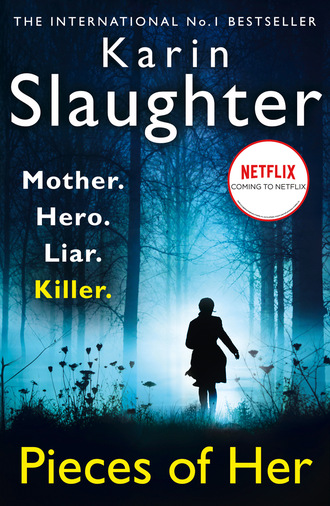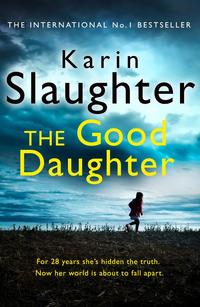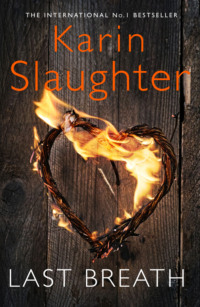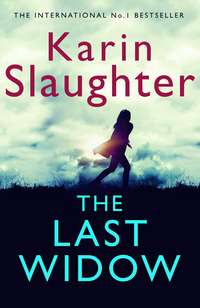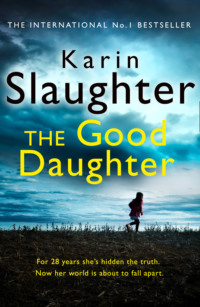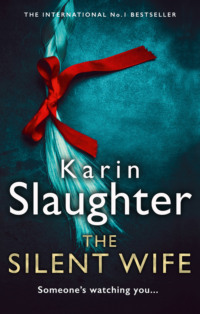A car door opened and closed. Andy knew it was her father because the McMansions along her mother’s street, all of them so huge that they literally blocked out the sun, were always vacant during the most extreme heat of the summer.
She heard scuffling feet across the driveway. Then Gordon’s heavy footsteps were on the metal stairs to the apartment.
Andy grabbed a trashbag out of the box. She was supposed to be packing. She opened the top drawer of her dresser and dumped her underwear into the bag.
“Andrea?” Gordon knocked on the door, then opened it.
He glanced around the room. It was hard to tell whether Andy had been robbed or a tornado had hit. Dirty clothes carpeted the floor. Shoes were piled on top of a flat box that contained two unassembled Ikea shoe racks. The bathroom door hung open. Her period panties from a week ago hung stiffly from the towel rod.
“Here.” Gordon offered the plate that Laura had given him. PB&J, chips and a pickle. “Your mom said to make sure you eat something.”
What else did she say?
“I asked for a bottle of wine, but got this.” He reached into his jacket pocket and pulled out a pint-sized bottle of Knob Creek. “Did you know your mother keeps bourbon in the house?”
Andy had known about her mother’s stash since she was fourteen.
“Anyway, I thought this might help tamp down some nerves. Take the edge off.” He broke the seal on the top. “What are the chances that you have some clean glasses in this mess?”
Andy put the plate on the floor. She felt underneath the sofa bed and found an open pack of Solo cups.
Gordon scowled. “I guess that’s better than passing the bottle back and forth like a couple of hobos.”
What did Mom say?
He poured two fingers of bourbon into the deep cup. “Eat something before you have a drink. Your stomach’s empty and you’re tired.”
Belle Isle Andy hadn’t had a drink since she’d returned home. She wasn’t sure whether or not she wanted to break the streak. Still, she took a cup and sat cross-legged on the floor so that her dad could sit in the chair.
He sniffed at the chair. “Did you get a dog?”
Andy sucked down a mouthful of bourbon. The 100 proof made her eyes water.
He said, “We should toast your birthday.”
She pressed together her lips.
He held up the cup. “To my beautiful daughter.”
Andy held up her drink, too. Then she took another sip.
Gordon didn’t imbibe. He dug into his suit pocket and retrieved a white mailing envelope. “I got you these. I’m sorry I didn’t have time to wrap them in something pretty.”
Andy took the envelope. She already knew what was inside. Gordon always bought her gift cards because he knew the stores she liked, but he had no idea what she liked from those stores. She dumped the contents onto the floor. Two $25 gas cards for the station down the street. Two $25 iTunes cards. Two $25 Target gift cards. One $50 gift card to Dick Blick for art supplies. She picked up a piece of paper. He had printed out a coupon for a free sandwich at Subway when you bought one of equal or lesser value.
He said, “I know you like sandwiches. I thought we could go together. Unless you want to take someone else.”
“These are great, Dad. Thank you.”
He swished around the bourbon but still did not drink. “You should eat.”
Andy bit into the sandwich. She looked up at Gordon. He was touching his mustache again, smoothing it down the same way he stroked Mr. Purrkins’ shoulders.
He said, “I have no idea what’s going through your mother’s mind.”
Andy’s jaw made a grinding noise as she chewed. She might as well have been eating paste and cardboard.
He said, “She told me to let you know that she’s going to pay off your student loans.”
Andy choked on the bite.
“That was my response, too.” Her student loans were a sore point with Gordon. He had offered to refinance the debt in order to help Andy get out from under $800’s worth of interest a month, but for reasons known only to her id, she had passed his deadline for gathering all the paperwork.
He said, “Your mother wants you to move back to New York City. To pursue your dreams. She said she’d help you with the move. Financially, I mean. Suddenly, she’s very free with her money.”
Andy worked peanut butter off the roof of her mouth with her tongue.
“You can stay with me tonight. We’ll work out something tomorrow. A plan. I—I don’t want you going back to New York, sweetheart. You never seemed happy up there. I felt like it took a piece of you; took away some of your Andy-ness.”
Andy’s throat made a gulping sound as she swallowed.
“When you moved back home, you were so good taking care of Mom. So good. But maybe that was asking too much. Maybe I should’ve helped more or … I don’t know. It was a lot for you to take on. A lot of pressure. A lot of stress.” His voice was thick with guilt, like it was his fault that Laura got cancer. “Mom’s right that you need to start your life. To have a career and maybe, I don’t know, maybe one day a family.” He held up his hand to stop her protest. “Okay, I know I’m getting ahead of myself, but whatever the problem is, I just don’t think going back to New York is the answer.”
Gordon’s head turned toward the television. Something had caught his eye. “That’s—from high school. What’s her—”
Motherfucker.
CNN had identified Alice Blaedel, one of Andy’s friends from high school, as a Close Friend of the Family.
Andy found the remote and unmuted the sound.
“—always the cool mom,” Alice, who had not spoken to Andy in over a decade, was telling the reporter. “You could, you know, talk to her about your problems and she’d, like, she wouldn’t judge, you know?” Alice kept shrugging her shoulder every other word, as if she was being electrocuted. “I dunno, it’s weird to watch her on the video because, you’re like, wow, that’s Mrs. Oliver, but it’s like in Kill Bill where the mom is all normal in front of her kid but she’s secretly a killing machine.”
Andy’s mouth was still thick with peanut butter, but she managed to push out the words, “Killing machine?”
Gordon took the remote from Andy. He muted the sound. He stared at Alice Blaedel, whose mouth was still moving despite not knowing a goddamn thing.
Andy poured more bourbon into her empty cup. Alice had walked out on Kill Bill because she’d said it was stupid and now she was using it as a cultural touchstone.
Gordon tried, “I’m sure she’ll regret her choice of words.”
Like she’d regretted getting genital warts from Adam Humphrey.
He tried again. “I didn’t realize you had reconnected with Alice.”
“I haven’t. She’s a self-serving bitch.” Andy swallowed the bourbon in one go. She coughed at the sudden heat in her throat, then poured herself some more.
“Maybe you should—”
“They lift cars,” Andy said, which wasn’t exactly what she meant. “Mothers, I mean. Like, the adrenaline, when they see that their kids are trapped.” She raised her hands to indicate the act of picking up an overturned automobile.
Gordon stroked his mustache with his fingers.
“She was so calm,” Andy said. “In the diner.”
Gordon sat back in the chair.
Andy said, “People were screaming. It was terrifying. I didn’t see him shoot—I didn’t see the first one. The second one, I saw that.” She rubbed her jaw with her hand. “You know that phrase people say in the movies, ‘I’m gonna blow your head off’? That happens. It literally happens.”
Gordon crossed his arms.
“Mom came running toward me.” Andy saw it all happening again in her head. The tiny red dots of blood freckling Laura’s face. Her arms reaching out to tackle Andy to the ground. “She looked scared, Dad. With everything that happened, that’s the only time I ever saw her look scared.”
He waited.
“You watched the video. You saw what I did. Didn’t do. I was panicked. Useless. Is that why …” She struggled to give voice to her fear. “Is that why Mom’s mad at me? Because I was a coward?”
“Absolutely not.” He shook his head, vehement. “There’s no such thing as a coward in that kind of situation.”
Andy wondered if he was right, and more importantly, if her mother agreed with him.
“Andrea—”
“Mom killed him.” Saying the words put a burning lump of coal in her stomach. “She could’ve taken the gun out of his hand. She had time to do that, to reach down, but instead she reached up and—”
Gordon let her speak.
“I mean—did she have time? Is it right to assume she was capable of making rational choices?” Andy did not expect an answer. “She looked calm in the video. Serene, that’s what you said. Or maybe we’re both wrong, because, really, she didn’t have an expression. Nothing, right? You saw her face. Everyday-ness.”
He nodded, but let her continue.
“When it was happening, I didn’t see it from the front. I mean, I was behind her, right? When it was happening. And then I saw the video from the front and it—it looked different.” Andy tried to keep her muddled brain on track. She ate a couple of potato chips, hoping the starch would absorb the alcohol.
She told her father, “I remember when the knife was in Jonah’s neck and he was raising the gun—I remember being really clear that he could’ve shot somebody. Shot me. It doesn’t take much to pull a trigger, right?”
Gordon nodded.
“But from the front—you see Mom’s face, and you wonder if she did the right thing. If she was thinking that, yes, she could take away the gun, but she wasn’t going to do that. She was going to kill the guy. And it wasn’t out of fear or self-preservation but it was like … a conscious choice. Like a killing machine.” Andy couldn’t believe she had used Alice Blaedel’s spiteful words to describe her mother. “I don’t get it, Daddy. Why didn’t Mom talk to the police? Why didn’t she tell them it was self-defense?”
Why was she letting everyone believe that she had deliberately committed murder?
“I don’t get it,” Andy repeated. “I just don’t understand.”
Gordon stroked his mustache again. It was becoming a nervous habit. He didn’t answer her at first. He was used to carefully considering his words. Everything felt especially dangerous right now. Neither one of them wanted to say something that could not be taken back.
Your mother is a murderer. Yes, she had a choice. She chose to kill that boy.
Eventually, Gordon said, “I have no idea how your mother was able to do what she did. Her thought process. The choices she made. Why she behaved the way she did toward the police.” He shrugged, his hands out in the air. “One could hazard that her refusal to talk about it, her anger, is post-traumatic stress, or perhaps it triggered something from her childhood that we don’t know about. She’s never been one to discuss the past.”
He stopped again to gather his thoughts.
“What your mother said in the car—she’s right. I don’t know her. I can’t comprehend her motivations. I mean, yes, I do get that she had the instinct to protect you. I’m very glad that she did. So grateful. But how she did it …” He let his gaze travel back to the television. More talking heads. Someone was pointing to a diagram of the Mall of Belle Isle, explaining the route Jonah Helsinger had taken to the diner. “Andrea, I just don’t know.” Gordon said it again: “I just don’t know.”
Andy had finished her drink. Under her father’s watchful eye, she poured another one.
He said, “That’s a lot of alcohol on an empty stomach.”
Andy shoved the rest of the sandwich into her mouth. She chewed on one side so she could ask, “Did you know that guy at the hospital?”
“Which guy?”
“The one in the Alabama hat who helped Mom into the car.”
He shook his head. “Why?”
“It seemed like Mom knew him. Or maybe was scared of him. Or—” Andy stopped to swallow. “He knew you were my dad, which most people don’t assume.”
Gordon touched the ends of his mustache. He was clearly trying to recall the exchange. “Your mother knows a lot of people in town. She has a lot of friends. Which, hopefully, will help her.”
“You mean legally?”
He did not answer the question. “I put in a call to a criminal defense lawyer I’ve used before. He’s aggressive, but that’s what your mother needs right now.”
Andy sipped the bourbon. Gordon was right: the edge was coming off. She felt her eyes wanting to close.
He said, “When I first met your mom, I thought she was a puzzle. A fascinating, beautiful, complex puzzle. But then I realized that no matter how close I got to her, no matter what combination I tried, she would never really open up to me.” He finally drank some bourbon. Instead of gulping it like Andy, he let it roll down his throat.
He told her, “I’ve said too much. I’m sorry, sweetheart. It’s been a troubling day, and I haven’t done much to help the situation.” He indicated a box filled with art supplies. “I assume you want this to go tonight?”
“I’ll get it tomorrow.”
Gordon gave her a careful look. As a kid, she would freak out whenever her art supplies were not close at hand.
Andy said, “I’m too tired to do anything but sleep.” She did not tell him that she had not held a charcoal pencil or a sketch-pad in her hands since her first year in New York. “Daddy, should I talk to her? Not to ask her if I can stay, but to ask her why.”
“I don’t feel equipped to offer you advice.”
Which probably meant she shouldn’t.
“Sweetheart.” Gordon sensed her melancholy. He leaned over and put his hands on her shoulders. “Everything will work itself out. We’ll discuss your future at the end of the month, all right? That gives us eleven days to formulate a plan.”
Andy chewed her lip. Gordon would formulate a plan. Andy would pretend like she had a lot of time to think about it until the tenth day, then she would panic.
He said. “For tonight, we’ll take your toothbrush, your comb, whatever you absolutely need, then we’ll pack everything else tomorrow. And get your car. I assume it’s still at the mall?”
Andy nodded. She had forgotten all about her car. Laura’s Honda was there, too. They were probably both clamped or towed by now.
Gordon stood up. He closed her art supply box and put it on the floor out of the way. “I think your mother just needs some time alone. She used to take her drives, remember?”
Andy remembered.
On weekends, Andy and Gordon would be doing a project, or Gordon would be doing the project and Andy would be nearby reading a book, and suddenly Laura would burst in, keys in her hand, and announce, “I’m going to be gone for the day.”
Oftentimes she would bring back chocolate for Andy or a nice bottle of wine for Gordon. Once, she’d brought a snowglobe from the Tubman Museum in Macon, which was two and a half hours away. Whenever they asked Laura where she had gone and why, she would say, “Oh, you know, just needed to be somewhere besides here.”
Andy looked around the cramped, cluttered room. Suddenly, it felt less like a cave and more like a hovel.
Before Gordon could say it, she told him, “We should go.”
“We should. But I’m leaving this on your mother’s porch.” Gordon pocketed the bourbon. He hesitated, then added, “You know you can always talk to me, sweetie. I just wish you didn’t have to get tipsy to do it.”
“Tipsy.” Andy laughed at the silly-sounding word because the alternative was to cry, and she was sick of crying. “Dad, I think—I think I want some time alone, too.”
“O-kay,” he drew out the word.
“Not, like, forever. I just think maybe it would be good if I walked to your house.” She would need another shower, but something about being enveloped by the sweltering, humid night was appealing. “Is that okay?”
“Of course it’s okay. I’ll tell Mr. Purrkins to warm your bed for you.” Gordon kissed the top of her head, then grabbed the plastic garbage bag she had filled with underwear. “Don’t dawdle too long. The app on my phone says it’s going to start raining in half an hour.”
“No dawdling,” she promised.
He opened the door but did not leave. “Next year will be better, Andrea. Time puts everything into perspective. We’ll get through what happened today. Mom will be herself again. You’ll be standing on your own two feet. Your life will be back on track.”
She held up her crossed fingers.
“It’ll be better,” Gordon repeated. “I promise.”
He closed the door behind him.
Andy heard his heavy footsteps on the metal stairs.
She didn’t believe him.
4
Andy rolled over in bed. She brushed something away from her face. In her sleeping brain, she told herself it was Mr. Purrkins, but her half-awake brain told her that the item was way too malleable to be Gordon’s chubby calico. And that she couldn’t be at her father’s house because she had no recollection of walking there.
She sat up too fast and fell back from dizziness.
An involuntary groan came out of Andy’s mouth. She pressed her fingers into her eyes. She could not tell if she was tipsy from the bourbon or had crossed into legit hungover, but the headache she’d had since the shooting was like a bear’s teeth gnawing at her skull.
The shooting.
It had a name now, an after that calved her life away from the before.
Andy let her hand fall away. She blinked her eyes, willing them to adjust to the darkness. Lowlight from a soundless television. The wah-wah noise of a ceiling fan. She was still in her apartment, splayed out on the pile of clean clothes that she stored on the sofa bed. The last thing she remembered was searching for a clean pair of socks.
Rain pelted the roof. Lightning zigzagged outside the tiny dormer windows.
Crap.
She had dawdled after promising her father that she would not dawdle, and now her choices were to either beg him to pick her up or walk through what sounded like a monsoon.
With great care, she slowly sat back up. The television pulled Andy’s attention. CNN was showing a photo of Laura from two years ago. Bald head covered in a pink scarf. Tired smile on her face. The Breast Cancer Awareness Walk in Charleston. Andy had been cropped out of the image, but her hand was visible on Laura’s shoulder. Someone—maybe a friend, maybe a stranger—had taken that private, candid moment and exploited it for a photo credit.
Laura’s details appeared on one side of the screen, a résumé of sorts:
—55-Year-Old Divorcee.
—One Adult Child.
—Speech Pathologist.
—No Formal Combat Training.
The image changed. The diner video started to play, the ubiquitous scroll warning that some viewers might find it graphic.
They’re going to take you down harder than him, Laura. This is all going to be about what you did, not what he did.
Andy couldn’t bear to watch it again; didn’t really need to because she could blink and see it all happening live in her head. She stumbled out of bed. She found her phone in the bathroom. 1:18 a.m. She’d been asleep for over six hours. Gordon hadn’t texted, which was some kind of miracle. He was probably as wiped out as Andy. Or maybe he thought that Laura and Andy had made amends.
If only.
She tapped on the text icon and selected DAD. Her eyes watered. The light from the screen was like a straight razor. Andy’s brain was still oscillating in her skull. She dashed off an apology in case her father woke up, found her bed empty and freaked: fell asleep almost there don’t worry I’ve got an umbrella.
The part about the umbrella was a lie. Also the part about being almost there. And that he shouldn’t worry, because she could very well get struck by lightning.
Actually, considering how her day had gone, the odds that Andy would be electrocuted seemed enormously high.
She looked out the dormer window. Her mother’s house was dark but for the light in her office window. It seemed very unlikely that Laura was working. During her various illnesses, she had slept in the recliner in the living room. Maybe Laura had accidentally left the light on and couldn’t bring herself to limp across the foyer to turn it off.
Andy turned away from the window. The television pulled her back in. Laura backhanding the knife into Jonah Helsinger’s neck.
Thwack.
Andy had to get out of here.
There was a floor lamp by the chair but the bulb had blown weeks ago. The overhead lights would be like a beacon in the night. Andy used the flashlight app on her phone to search for an old pair of sneakers that could get ruined in the rain and a poncho she’d bought at a convenience store because it seemed like an adult thing to have in case of an emergency.
Which is why she had left it in the glove box of her car, because why would she go out in the rain unless she got caught without an umbrella in her car?
Lightning illuminated every corner of the room.
Crap.
Andy pulled a trashbag from the box. Of course she didn’t have any scissors. She used her teeth to rip out a hole approximately the circumference of her head. She held up the phone to gauge her progress.
The screen flickered, then died.
The last thing Andy saw were the words LO BAT.
She found the charger stuck in an outlet. The cable was in her car. Her car was two and a half miles away parked in front of the Zegna menswear store.
Unless it had already been towed.
“Fuck!” She said the word with heartfelt conviction. She pushed her head through the trashbag hole and stepped outside. Rain slid down her back. Within seconds, her clothes were soaked so that the homemade poncho turned into cling wrap.
Andy kept walking.
The rain had somehow amplified the day’s heat. She felt hot needles stabbing into her face as she turned onto the road. Streetlights did not exist in this part of the city. People bought houses on Belle Isle because they wanted an authentic, old-fashioned, southern coastal town experience. At least as old-fashioned as you could get when the cheapest mansion off the beach ran north of two million dollars.
Nearly three decades ago, Laura had paid $118,000 for her beachside bungalow. The closest grocery store had been the Piggly Wiggly outside of Savannah. The gas station sold live bait and pickled pigs’ feet in large jars by the cash register. Now, Laura’s house was one of only six original bungalows left in Belle Isle. The land itself was worth literally twenty times the house.
A bolt of lightning licked down from the sky. Andy’s arms flew up as if she could stop it. The rain had intensified. Visibility was around five feet. She stopped in the middle of the road. Another flash of lightning stuttered the raindrops. She couldn’t decide whether or not to turn around and wait for a lull in the storm or keep heading toward her father’s.
Standing in the street like an idiot seemed like the worst of her options.
Andy jumped over the curb onto the sidewalk. Her sneakers made a satisfying splash. She made another splash. She picked up her feet and lengthened her strides. Soon, Andy had pushed herself into a light jog. Then she went faster. And faster.
Running was the only thing that Andy ever felt she did well. It was hard to continually throw one foot after the other. Sweating. Heart pounding. Blood racing through your ears. A lot of people couldn’t do it. A lot of people didn’t want to, especially in the summer when there were heat advisories warning people not to go outside because they could literally die.
Andy could hear the rhythmic slap of her sneakers over the shushing rain. She detoured away from the road that led to Gordon’s, not ready to stop. The boardwalk was thirty yards ahead. The beach just beyond. Her eyes started to sting from the salt air. She couldn’t hear the waves, but she somehow absorbed their velocity, the relentless persistence to keep pushing forward no matter how hard gravity pulled at your back.


